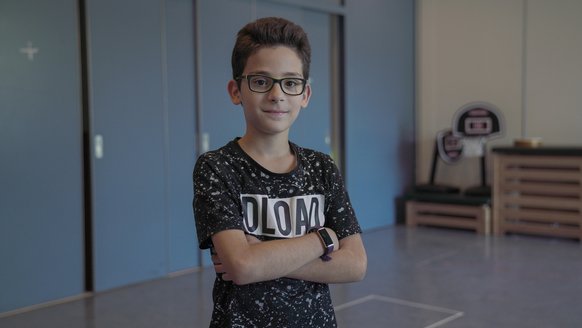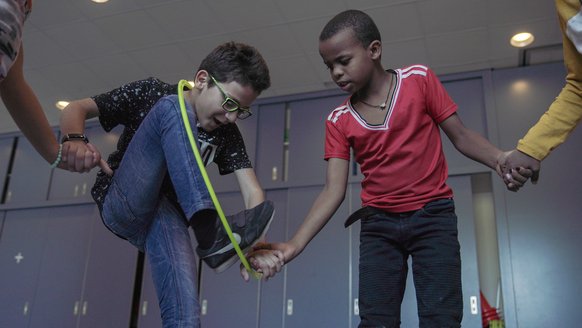Jesus (9) From Eritrea is Learning to Clear His Head With TeamUp
"In Eritrea I was beaten at school and there was a lot of fighting," says Jesus, who has living in the Netherlands for one year. Jesus: "In the beginning I didn't like it in the Netherlands, because I couldn't speak Dutch or English." His teacher Cora also saw this in his behaviour: "Jesus joined us as withdrawn and pensive." She’s been teaching children who do not yet speak the Dutch language for six years.
The backgrounds and ages of the children in her class vary. Some come from an asylum seekers' centre and have a temporary residence permit, others come for family reunification or are working migrants. "That makes my work incredibly versatile and challenging," continues Cora.
Space in your head
In addition to subjects such as language and numeracy, Cora also deals with the children’s socio-emotional development. "We often see the emotional baggage they are dragging with them in their behaviour. Sometimes children are very angry, stressed or unable to express their emotions. Having ‘space in your head’ is a prerequisite for learning and development", says Cora.
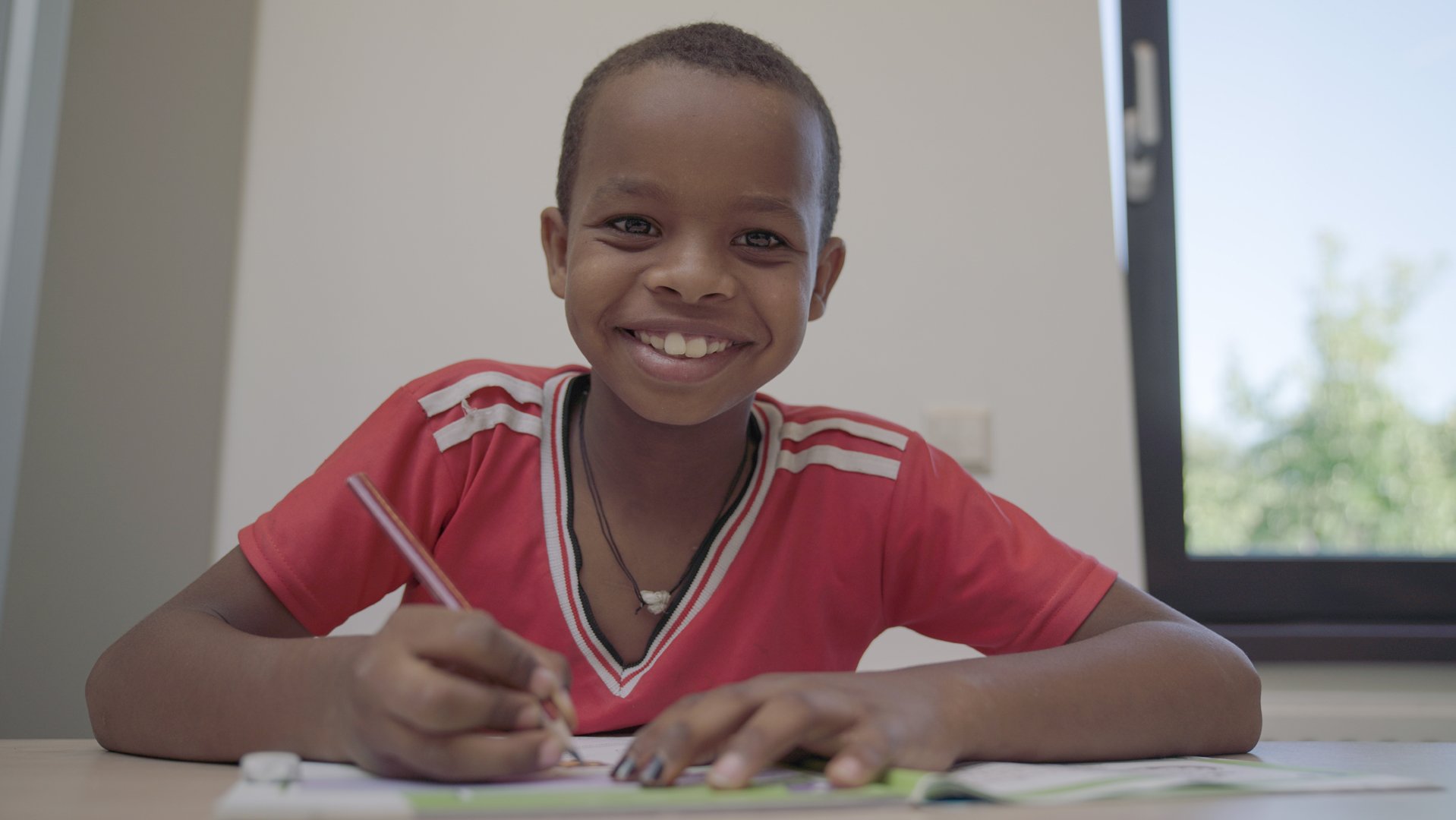
Having ‘space in your head’ is a prerequisite for learning and development", says Cora.
Photo: Michael Jessurun
TeamUp at School
Cora works with the children once a week using TeamUp methods. "TeamUp offers play and movement activities that don’t require words. Language is secondary during the exercises, experiencing fun and emotion is paramount. "Through the programme, the children are encouraged to experience and express their emotions. This can make them happy, scared or angry." Cora describes the activities as a moment where they can be themselves. "You see the children come to rest, to open up and team bonding grows from that."
Right from the start, all emotions are allowed. All the children want to win when playing dodgeball, including Jesus. When he loses a round, his disappointment is visible. "I think TeamUp is stupid, because the teacher said the other team won", he says. Angry, he sits down on the bench. TeamUp is intended for these moments as well. Jesus learns to recognise emotions such as anger and disappointment, and to deal with them by taking a time-out. These are skills he can use in daily life.
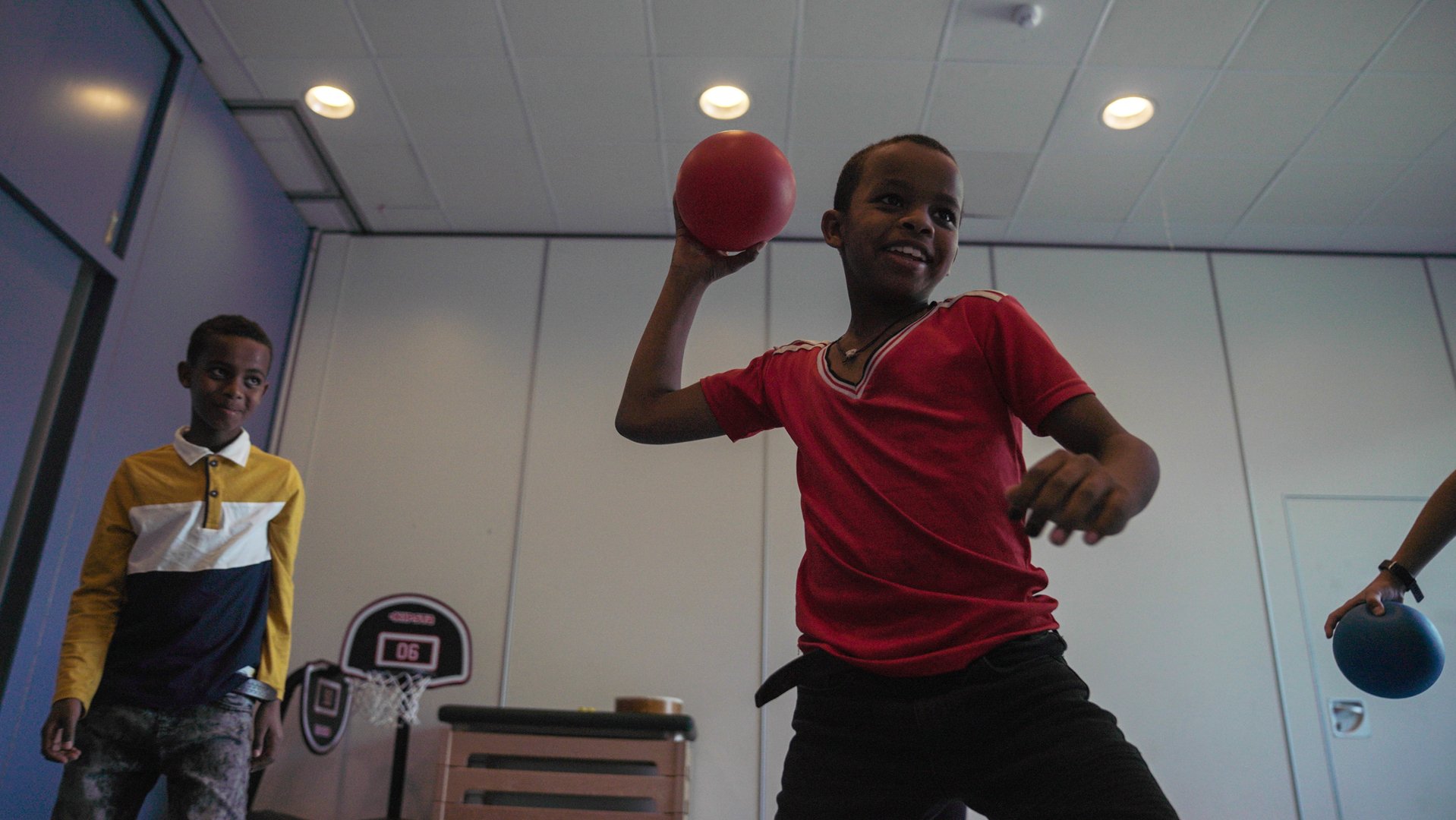
Jesus learns to recognise emotions such as anger and disappointment, and to deal with them by taking a time-out.
Photo: Michael Jessurun
Working together
In the next activity the focus is on cooperation. Everyone has to get through the hoop as quickly as possible and pass it on to the next person. Soon a big smile appears once more on Jesus’ face, and he’s encouraging his teammates.
Because of the activities Cora sees the difference: "He slowly becomes himself, he plays pranks, becomes happier and feels at ease".
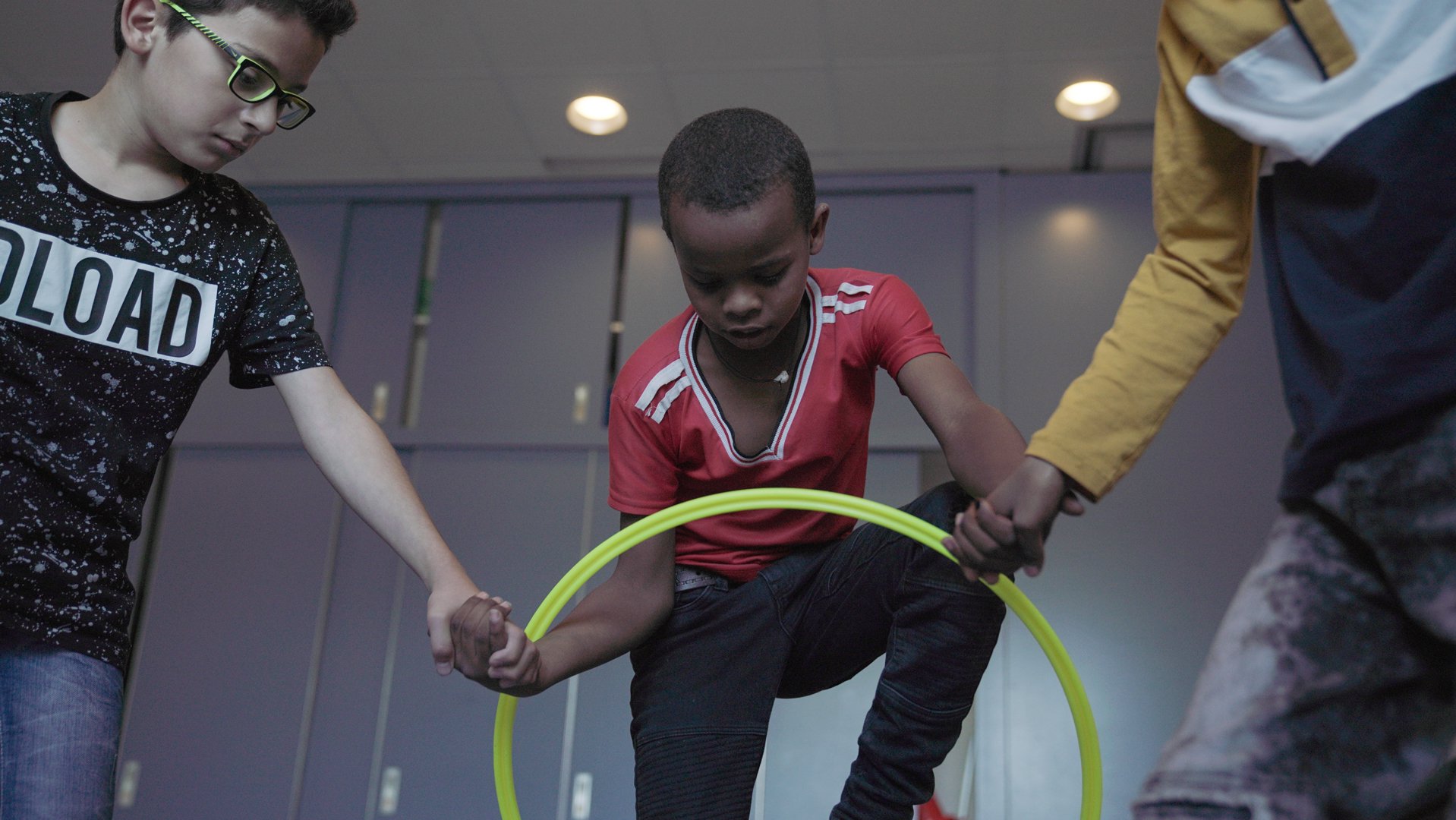
Cooperation in the TeamUp activities contributes to increased social and emotional stability for refugee children.
Photo: Michael Jessurun
Recently, TeamUp held an evaluation to assess the quality of the programme’s implementation in schools and the possible effects on children's well-being. You can view the results here.
*All names in this story have been changed to preserve the safety of the children who take part in our programmes.
